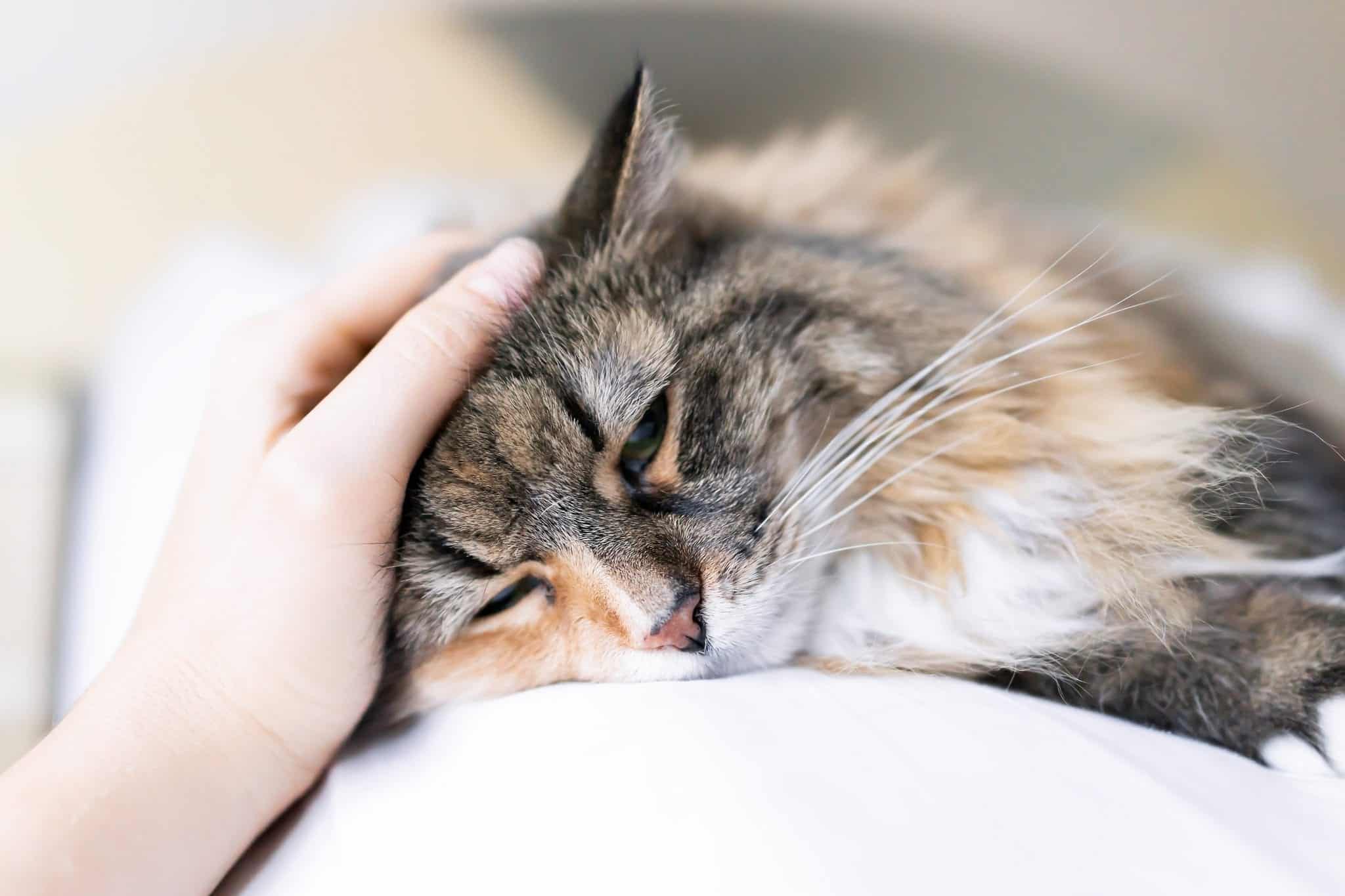You know your cat is trying to tell you something with all those meows and yowls, but the trick is in the translation. Without speaking the same language, it’s up to you to communicate with your cat and understand her wants and needs. And while cats can make up to 100 different vocal sounds, we all know what noise they’re known for–MEOW! A cat’s meow is their go-to sound. With the exception of kittens communicating with their mothers, meowing is reserved specifically for “talking” with humans. So when your feline friend starts talking, you better start listening. All cats meow at their humans on occasion, but what if your cat won’t stop meowing?
Excessive meowing is a sure sign something isn’t quite right with your cat. Your cat’s constant communication could be because of one of these five reasons.
1. Illness or Injury
The first thing you want to consider if your cat won’t stop meowing is her health. Cats are known for stoically hiding their pain, but that doesn’t happen all the time. Sometimes, when your cat isn’t feeling well, she’ll make sure you know it. Pain, discomfort, or an unquenchable thirst could be causing your cat to speak up about her ailments.
It doesn’t matter how old your cat is or what her health has been like in the past. Illnesses and injuries are completely unpredictable. If you’re ever confused about what’s going on with your cat’s unusual behavior, it’s always best to schedule an appointment with your vet.
2. FEED ME
This is a classic communication trick for all the beloved house kitties of the world. Nothing says, “FEED ME!” like when your cat won’t stop meowing. Some cats learn exactly what time to expect their meals, and they start meowing if you’re late. Other cats meow every time someone enters the kitchen. Occasionally this behavior is a good indication that your cat is legitimately hungry, but you can’t let this begging ruin your cat’s diet.
Feeding your cat every time she meows will only make her meowing worse and risk her good health. If your cat’s constant meowing is becoming a problem, make a rule to never feed her when she meows. Wait until she’s quiet, or else you’ll transform from a human to an automatic treat dispenser.
3. Desperate for Attention
The average cat probably isn’t as outgoing as the average dog, but that doesn’t mean cats don’t like/need your attention. If your kitty spends all day home alone, you shouldn’t be surprised if she meows for attention when you finally walk through the door. It’s important to spend quality time with your cat every day. That could mean twirling around a feather toy or getting cozy on the couch.
As with feeding, you have to be careful about rewarding your cat for her incessant meowing. It’s better to initiate playtime or interaction with your cat when she’s being quiet and respectful. You don’t want to reinforce the idea that rude or demanding behavior will get her what she wants. But at the same time, don’t neglect your cat. If she’s telling you that you’re not giving her enough attention, she’s probably right.
4. Signs of Stress
Some cats become more vocal when they’re stressed. It’s their way of expressing their unease, and it likely won’t stop until they feel more relaxed. You might think your feline’s life is nothing but naps in the sun and fresh catnip, but there are countless reasons why a cat might be stressed out. A change in routine, new people in the house, or trouble with another pet are possibilities.
If you think your cat won’t stop meowing because of stress, try pinpointing what she’s concerned about. Look for other signs of stress, like not using the litter box, digestive issues, or excessive grooming. If you can figure out what’s worrying your cat, you can work to alleviate her feelings. In many cases, cats just need a little more TLC to help them feel like themselves again.
5. Cognitive Decline
As cats age, they’re prone to a number of health issues. One of those is cognitive dysfunction. Older cats can become confused and disoriented. This mental cloudiness can cause some cats to be more vocal than usual. They can meow and cry for no apparent reason, and food, cuddles, and other kinds of attention won’t help them quiet down.
If your older cat won’t stop meowing, it might be because she’s feeling more confused than usual. A veterinarian may be able to prescribe a medication to help kitty feel more like herself.
Your cat’s constant meowing could be due to any of these five reasons. Now that you know what they are, it’s time to go through the list and determine which scenario makes the most sense for your feline friend. Continue to observe your cat’s behavior and try different things to satisfy her needs. If you’re still having trouble, don’t hesitate to contact your vet.





